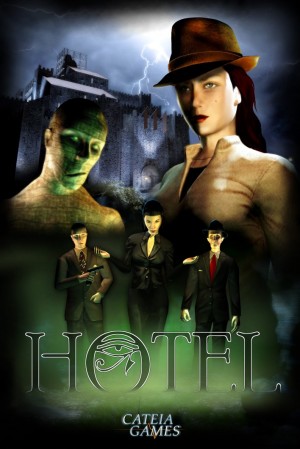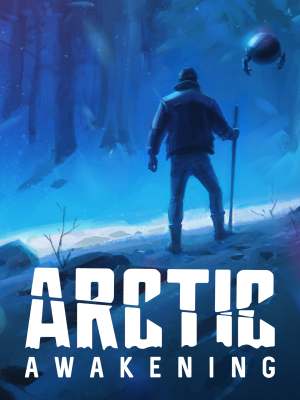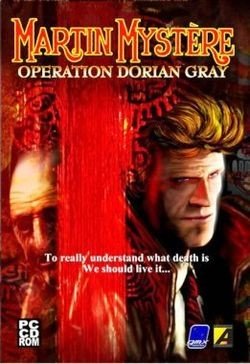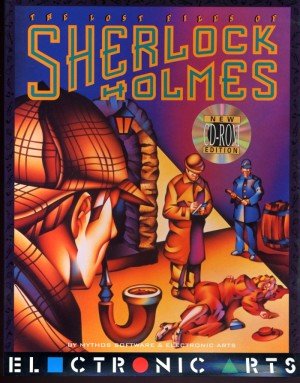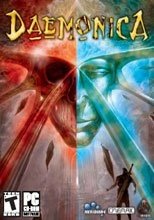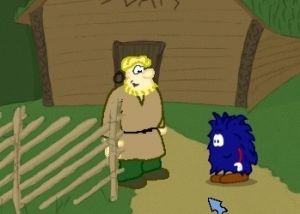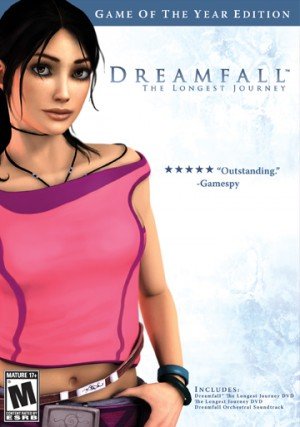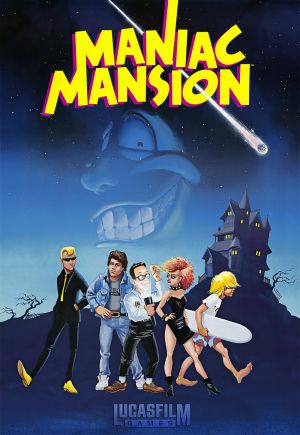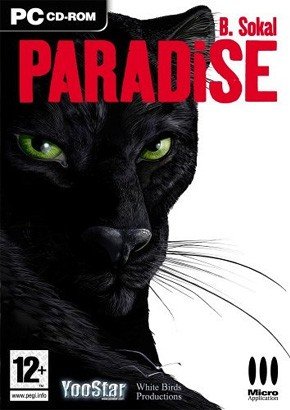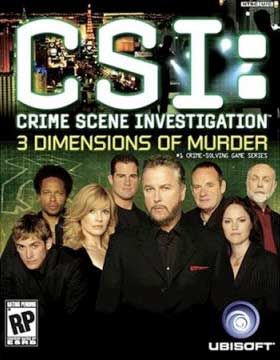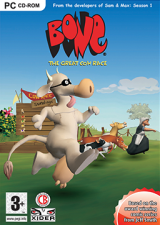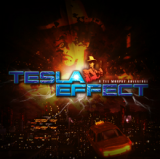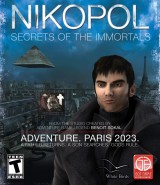Review for Hotel
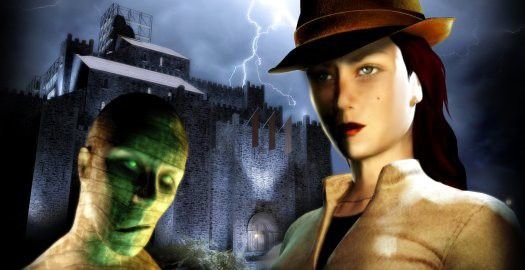
Last year, The Legend of Crystal Valley was a pleasant surprise. Despite somewhat skimpy production values, the adventure from independent Croatian studio Cateia Games had a nice little story, a charming setting, a comely atmosphere and some solid game mechanics. It says something about it that I'm still hoping for a sequel. Although Hotel is not the successor I wanted, I approached the new game with anticipation, eager to see if the developers were able to build on the merits of their first title and improve the experience. Unfortunately, Hotel retains almost nothing of the charm of its predecessor, instead trying to exploit the current trend of religious mysteries and dark conspiracies (haven't we had enough of the Knight Templars for a lifetime?). In doing so, it becomes little more than a copycat of better titles, marred by a silly, mishmashed storyline and uninteresting characters, while the lack of any voiceovers will probably put off everyone but casual game fans and the most avid old-school adventurers.
The thing that disappointed me most about Hotel, though, is the lack of any real challenge. In a story-driven adventure, it's always good to keep the puzzles light to maintain the natural flow of the plot, but it’s one thing is to focus on dialogue and characters between integrated obstacles, and quite another to remove the challenge altogether. And that is what Hotel has done. Aside from some extremely straightforward, almost trivial inventory puzzles, there are a number of logic-based conundrums scattered throughout the adventure: switches to operate, buttons to press in a certain order, spheres to rotate, symbols to align and so on. Yet not a single one of these puzzles will test anything other than your patience, as the solutions are often a matter of dry trial-and-error, and usually not even much of that. Many of them will be instantly recognizable from other games: There are mazes to navigate, tubes to arrange for water flow, boxes with abstruse locks to open. Every adventurer is used to encountering one or two of these tropes once in a while, but when they all make an appearance in a game that lasts six hours at most, it's troubling. When asked to retrieve eight pieces of parchment more or less hidden in some shadowy shelves, I had the distinct impression that the game was simply throwing tasks at me for the sake of it, without any clever ideas to sustain them.
A partial reason for this is that the game has obviously been designed with a casual audience in mind. There is an optional tutorial to get you started, a journal where every objective is spelled out in great detail, along with basic information about the plot and characters, and a progressive hint system is available for any player who may get stuck on a puzzle. Examining items on screen requires nothing more than a single click, and it's always very clear what can only be observed and what can be picked up and manipulated. There are a few more features, like a camera the protagonist can use to overcome certain situations, but its use is limited and seems more like a gimmick than a fully integrated option. A welcome feature returning from Crystal Valley is the ability to travel instantly between screens of previously visited locations, as does the less-welcome use of the spacebar to make your character run. Mechanically, then, Hotel is a game that’s ideally suited for genre beginners, though the same can’t be said of its other elements.
The story itself seems designed to allure casual players, because every adventurer worthy of the title is bound to notice how incredibly hackneyed it is. In Hotel, players take the role of New York police detective Bridget Brightstone, who is sent by her boss, Chief Inspector McCloud, to the luxurious Bellevue Hotel in France to investigate the case of a missing necklace, whose proprietor now lies in a coma. Sounds easy enough, but things are never what they seem, and when Bridget starts to see ghostly apparitions around the posh halls of the hotel – once a medieval castle belonging to the Knights Templars – she realizes that something far more sinister is going on in Bellevue, something that dates back to the times of the Roman Empire. But why is Inspector Matisse, the local investigator, doing everything in his power to hinder her investigation? This is only one of the questions the player will have to answer, and by far the easiest to figure out.
This premise, while clichéd, could have been somewhat interesting, but what really ruins the story is that Cateia seems to have thought it best to throw everything they could in a cauldron and stir it all together, forcing different elements to coalesce against their will. Secret cult of madmen? Check. Saint Greal? Check. King Arthur and his knights? Check. Ancient Egyptian artifacts? Check. And things get even wilder when Bridget starts to visit different dimensions, like Avalon and the Underworld, meeting Arthur, Cleopatra and Mark Antony in person. The plot quickly devolves into a silly, unintentionally hilarious hodgepodge, and when the scope of this conspiracy is revealed, you'll have the distinct feeling of déjà vu. Even the writing begins to wander. At times the script tries to be metaphysical, at others it tries to lighten up the tension with terrible jokes, but it always falls short of its goal, and the disparate elements clash in a kitsch pastiche barely worthy of a Z-movie.
It doesn't help that Bridget is, without a doubt, one of the most insipid characters I've ever played. Her remarks are constantly dull, her humor falls flat, and her attempts at being cultivated are irritating. What’s worse, she behaves like a police detective who skipped almost every one of her classes: she has no respect whatsoever for the law and has no problem breaking open everything that is locked and removing evidence from crime scenes. At one point there’s a hint raised of a mysterious event from her past, an event that deeply scarred her, and I was beginning to think that Bridget might yet turn out to be an interesting character. Unfortunately, the mystery of her past is never solved and her secret never revealed, wasting that potential development. The supporting cast, from the quirky concierge to the insufferable French inspector, all the way through to the historical figures, is even worse, as lackluster and stereotypical as they come. The dialogues, even the ones intended to be deep and poignant (like Bridget’s encounter with Death – yes, you heard right, though not the result of her own demise) are exceptionally dreary and cringe-worthy to say the least.
Obviously this game has some serious issues, but I have nothing too bad to say about the production values of this independent adventure – “independent” being the key word here. The graphics, a clear improvement over Crystal Valley, are crisp and fairly detailed, and they display a great use of light and shadow. The locations – dusty libraries, rural graveyards, underground crypts, luscious bedrooms with curtain beds and magnificent stone walls – are evocative, and the atmosphere is gripping and accordingly eerie. Even with its lack of guests, the Bellevue Hotel would undoubtedly be a great place to visit. No one wants to find themselves in the Underworld, but this is perhaps the one location Cateia put every bit of their creative energy into. There is one scene in particular where the milky, misty background with eerily lopsided baroque columns really sent a shiver down my spine, making me momentarily enthralled by what was happening. The animations are a bit clunky and there are a couple of pathfinding problems throughout, but these minor issues didn't bother me.
Even if you’re willing to overlook Hotel’s storytelling weaknesses, there remains what will surely be a deal-breaker for some players. Aside from the opening sequence, the game has no voice acting, and it's up the player to read every single line of dialogue. I personally don't have a problem with this choice – clearly dictated by budgetary reasons – since I'm used to playing old adventures from a period where voice acting was just a dream. Many contemporary players, however, will be severely put off by this feature, or lack thereof. Capably filling the silence is the musical score, which is appropriately eerie and sometimes even ominous, almost hair-raising in a good way.
All in all, I can't recommend Hotel, even at its budget downloadable price (a boxed retail version is also now available). As a fervent fan of story-driven adventures, I was disappointed by the muddied storyline, insipid writing and trite characters, and the uninspired gameplay, made up of dozens of simplistic, formulaic puzzles, only worsened my experience. Still, if a player is just looking for an easy, relaxing diversion between more substantial adventures, or if you’ve already played every single conspiracy mystery out there, Hotel is nice to look at and listen to (minus the voices), and the atmosphere is chilling. Moreover, the ease of the game and extremely user-friendly interface will perhaps help genre newcomers become acclimatized to traditional adventure mechanics and then, hopefully, move on to better titles. For the rest of us, we’ll just have to hope that Cateia moves onto developing better titles as well.


